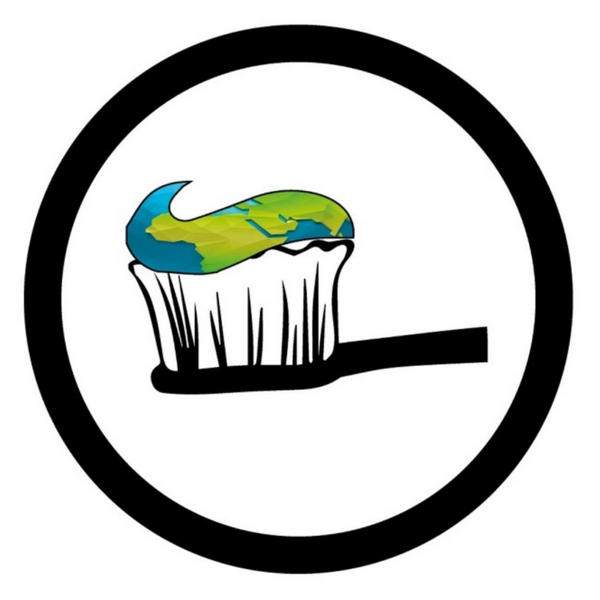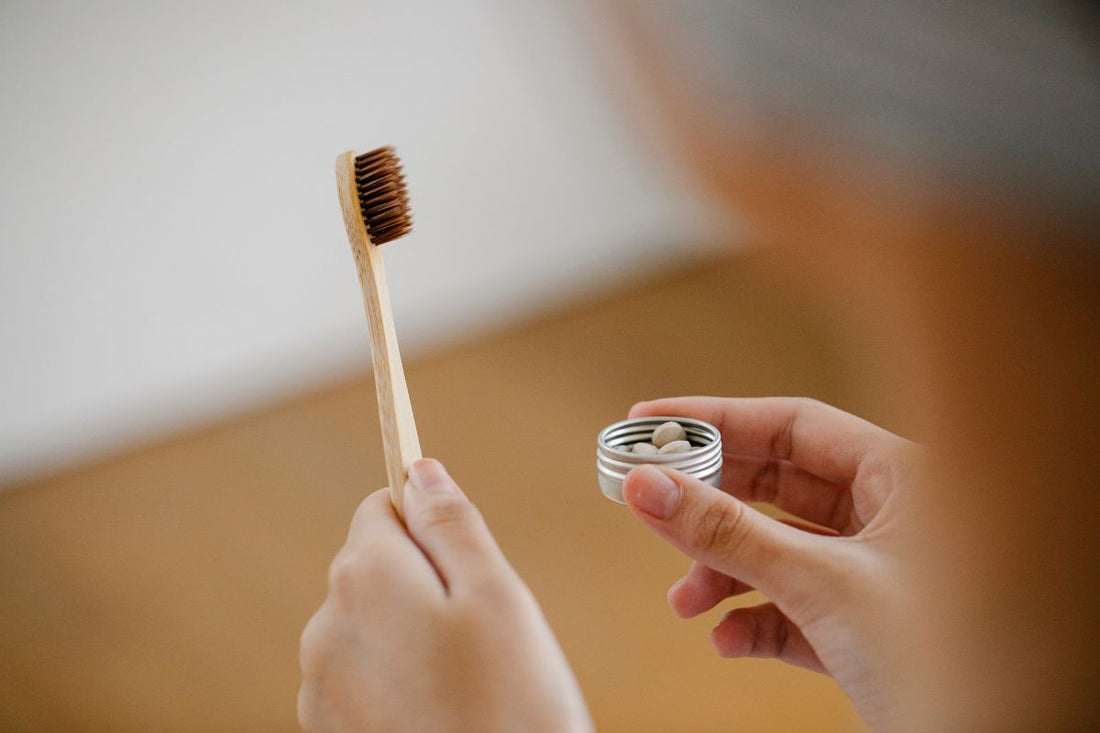Brushing your teeth is essential to maintaining good oral hygiene, and the toothpaste you choose can play a large part in this. However, while toothpaste is an essential, there is a growing interest in its negative impact on the environment, with many individuals seeking a more sustainable alternative.
So, just how bad is toothpaste for the environment? And how we can maintain oral hygiene without impacting the planet?
This article aims explores the environmental impact of toothpaste and whether it is harmful, and explores alternatives and strategies to minimise your environmental footprint when brushing your teeth.
Is Toothpaste Bad for the Environment?
The negative impact of toothpaste on the environment stems from the conventional manufacturing and disposal practices of traditional toothpaste, which contributes to pollution and landfill. As Jessica Jones of The Independent reminds us, these issues that toothpaste causes are multiplied by the billions of people around the world who use it on a regular basis.
Let's look at how toothpaste negatively impacts the environment in more detail.
1. Energy Consumption
From the extraction of raw materials, such as silica and calcium carbonate, to the manufacturing and transportation of the final product, creating toothpaste requires significant energy consumption that contributes to our growing carbon footprint.
Indeed, as reported by Forbes, almost every piece of plastic begins as a fossil fuel, and greenhouse gases are emitted at each stage of the plastic lifecycle: fossil fuel extraction and transport, plastic refining and manufacture, and managing plastic waste.
This negative impact is exacerbated through the ingredients it uses and the packaging it is presented in.
2. Ingredients
Many toothpastes contain harmful ingredients, such as triclosan, carrageenan, propylene glycol, microbeads (microplastics) and artificial colours, which when washed down the drain, can contribute to water pollution and have adverse effects on our fragile aquatic ecosystems and marine life.
Indeed, according to Dutch NGO Plastic Soup Foundation’s Beat the Microbead campaign, roughly half of all toothpastes contain microplastics.
When fish ingest microbeads, these can end up on our plates via the seafood we eat. While most plastic has been found in the guts of fish, and would therefore be removed before eating, some studies have warned that microplastics, particularly at the nanoscale, could transfer from the guts to the meat. Scientists at Ghent University in Belgium also recently calculated that shellfish lovers are eating up to 11,000 plastic fragments in their seafood each year.
3. Packaging
Traditional toothpaste tubes are made from non-recyclable materials like plastic and aluminium, which end up in landfill and contribute to pollution.
Globally, 1.5 billion toothpastes tubes are discarded each year. In the UK alone, we use 300 million tubes of toothpaste every year. If this was spread end-to-end, that’s around 75,000 kilometres of plastic, which could go almost twice around the world - and almost all of these end up in landfill. On average, it takes 500 years for a toothpaste tube to biodegrade in landfill, meaning that every tube you have used in your lifetime is probably still out there.

4. Disposal
In general, toothpaste tubes are not recyclable. Although more toothpaste tubes are now being made of recyclable HDPE plastic, many local authorities still don't accept toothpaste tubes via kerbside recycling schemes.
Pump-action toothpaste tubes can be easier to recycle but you will still need to check with your local council to see if they can be collected. You can check your local authority's recycling advice here, or look for a local collection point for toothpaste tubes, such as in a Boots store. Unfortunately, this is not as simple as just popping it in your recycling bin.
This all said, not all toothpastes are bad for the environment. Advances in sustainable alternatives and formulations mean there are toothpastes that can be produced, used and disposed of in a more environmentally-friendly manner.
Environmentally Friendly Toothpaste
You can avoid plastic toothpaste tubes and harmful ingredients by buying your toothpaste in tablet form. To use toothpaste tablets, which come in recyclable packaging and contain just natural ingredients, chew them down into a paste and then use as you would a regular toothpaste.

1. Ingredients
Toothpaste tablets have similar ingredients to traditional toothpaste but avoid harmful chemicals and preservatives, such as parabens or sodium benzoate. Just keep an eye on their fluoride content; some toothpaste tablets don’t contain fluoride, which is the ingredient that fights plaque, strengthens our enamel and prevents cavities. In addition to this, keep in mind that some toothpaste uses terms like "natural" or "chemical-free" for marketing purposes, so check the ingredients list for anything harmful before you purchase.
As an added bonus, toothpaste tablets don't contain liquid, which means they are designated as safe to travel.
For those who want to avoid buying new products altogether, you can use simple ingredients like baking soda, coconut and peppermint oil to create homemade toothpaste and reduce your environmental impact.
2. Charcoal
If you're after some added benefits, charcoal toothpaste tablets contain ingredients to aid with enhanced stain removal and teeth whitening. It is also thought that the activated charcoal attracts food particles and plaque, which could help to tackle bad breath.
3. Packaging
Metal tubes, glass jars and tins of toothpaste tablets are more widely recyclable than their plastic counterparts, and plastic-free, compostable bamboo toothbrushes are becoming increasingly popular as an environmentally-friendly alternative to plastic toothbrushes.
4. Disposal
Depending on what your toothpaste tablets come in, you can repurpose or "upcycle" the packaging instead of (or before) recycling it. Depending on the size and shape of your container, you could consider turning yours into a:
- Spice & Ingredient Jars
- Mini Sewing Kit
- Mini First Aid Kit
- Snack Container
- Desk Organiser
- DIY Candle Holder
- Travel Jewellery Case

Conclusion
While toothpaste has always contributed to environmental issues, we now have the power to make better choices with sustainable alternatives on the market, such as purchasing recyclable toothpaste tubes or toothpaste tablets. By selecting toothpaste with sustainable packaging and natural ingredients, you can mitigate the environmental impact of your oral care routine, while maintaining perfect dental hygiene.
Brush Fresh is founded and run by a group of UK-based dentists, who specialise in environmentally-friendly and sustainable dental products. From biodegradable bamboo toothbrushes to zero waste toothbrush tablets, our product range has been designed to put both your dental health and the environment first. For more information and dental care advice, head over to our blog page or get in contact with us here.

